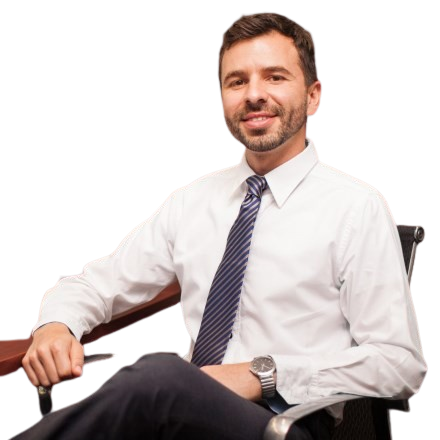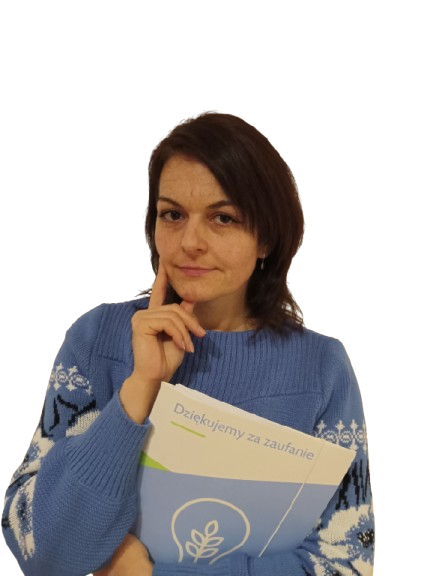

See more
 Publication date: 10.02.2025
Publication date: 10.02.2025
She has been working as a lawyer since 2011. She has successful experience in criminal law cases, as well as in family and administrative law cases. She is guided by legislative norms in her work. However, she believes that the success of a case also depends on the client's persistence combined with faith in achieving the goal.
Case details: The defendant is charged with double murder, for which he faces life imprisonment.
Problem: The reliability of the conducted forensic medical examination.
Solution: A petition for conducting a repeat forensic medical examination was prepared.
The person received: Evidence that the crime was committed by a group of individuals under different circumstances.
Result: Instead of life imprisonment, the defendant was sentenced to 15 years of imprisonment.
The lawyer was involved by the Investigative Department for conducting a separate procedural action (SPA). The client was accused of double murder and was facing life imprisonment. However, the defendant's parents turned to lawyer Maya Petrovna for help. This case was featured on the program "Battle of Psychics."
In the case, the lawyer wrote a petition for conducting a repeat forensic medical examination.
Forensic medical examination (FME) is a study conducted by experts to establish circumstances related to bodily injuries, causes of death, health condition, etc.
Types of forensic medical examinations:
- FME of living persons – determining the degree of bodily injuries, health condition.
- FME of corpses – determining the cause of death, time of death, presence of poisoning.
- FME of physical evidence – analysis of biological traces, blood, hair, DNA.
- Repeat or additional FME – if the initial conclusions were incomplete or questionable.
In the described case, the first episode was sent for investigation. Forensic medical examination is key evidence in criminal, civil, and administrative cases. It can change the course of the investigation, confirm or refute the parties' versions. In this particular case, the repeat forensic medical examination showed that the injuries inflicted on the victim were caused by a group of individuals under different circumstances. This conclusion became a key piece of evidence for the defense, combined with other evidence. The court concluded that the case of this murder should be reinvestigated.
What does the lawyer do in forensic medical examination matters?
- Submits a petition for conducting or repeating the examination.
- Challenges the expert's conclusions if they contain errors or contradictions.
- Sends the case to independent expert institutions.
- Monitors compliance with the law during the examination.
Repeat FME – a chance to reconsider the case. If the primary examination contains contradictions or was conducted with violations, the lawyer can file a petition for a repeat examination. A new conclusion can change the course of the case or even exonerate the person. Forensic medical examination can fundamentally change the course of a case – both in favor of the prosecution and the defense. It plays a decisive role in determining the truth and justice.
Rules for filing an appeal by a lawyer in Ukraine. A lawyer has the right to file an appeal against the first-instance court's decision if there are grounds to believe that it was made in violation of the law or the evidence was improperly evaluated.
Time limits for filing an appeal:
- Criminal cases: 30 days from the day the verdict or ruling is announced.
- Civil cases: 30 days from the moment the full text of the decision is received.
- Administrative cases: 30 days (if the decision was made by a single judge) or 15 days (if made by a panel).
- Commercial cases: 20 days.
Procedure for filing an appeal:
- The appeal is submitted through the first-instance court that made the contested decision.
- The court sends the case to the appellate court after verifying the documents.
- The appellate court opens proceedings and schedules a hearing.
- The court reviews the case (it may leave the decision unchanged, modify, or cancel it).
Additional evidence can be submitted during the appeal if it is proven that it was impossible to present it in the first instance.
If the deadline is missed for a valid reason, a petition for the restoration of the deadline can be submitted.
Trust in the lawyer – the foundation of a successful legal process.
Trust between the client and the lawyer is a key factor in the successful handling of the case. The lawyer always acts in the client's best interest, even if the decisions seem complicated or unpopular. In turn, the client feels more at ease knowing that the lawyer is in control of the situation. For any complex matters, always seek help from professionals.




























































